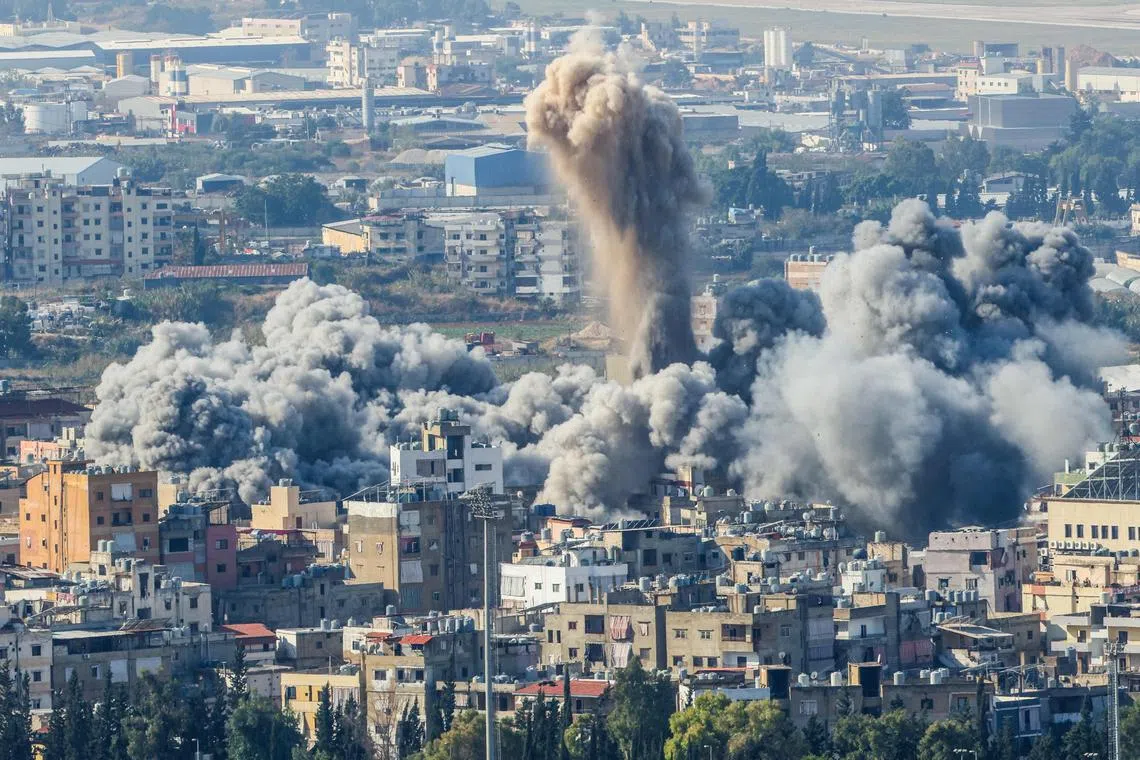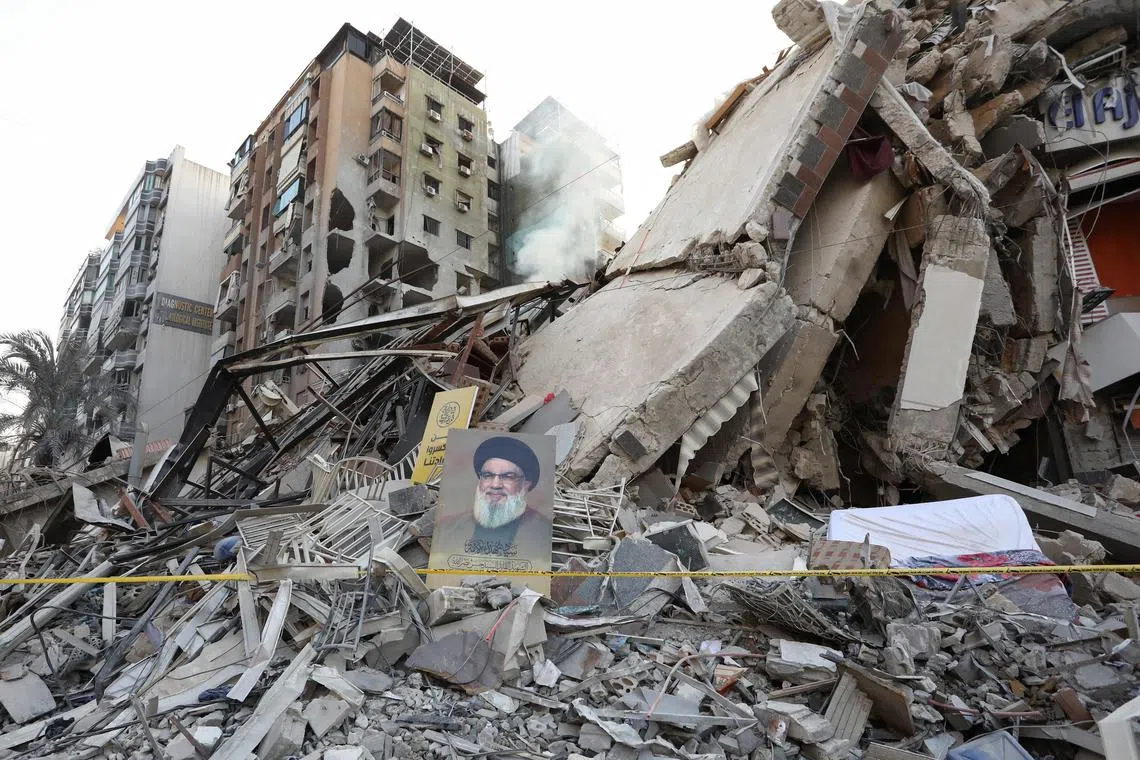Israel expands south Lebanon push as truce prospects remain hazy
Sign up now: Get ST's newsletters delivered to your inbox

Smoke plumes rising after an Israeli air strike on a neighbourhood in southern Beirut on Nov 14.
PHOTO: AFP
Follow topic:
BEIRUT – Israeli ground forces are expanding their six-week-old sweep of villages in southern Lebanon, triggering new clashes with Hezbollah militants, while US-initiated ceasefire plans
An Israeli official, who requested anonymity, said the army has started moving into a second line of Lebanese communities beyond an initial operational zone approximately 3km in depth.
An Israel Defence Forces (IDF) spokesman said its troops were “operating in new places” but at “the same sort of range or distance”.
The advance came alongside air strikes against more than 30 Hezbollah sites
“We do not want to see these kinds of consistent operations in Beirut, especially as it relates to densely populated areas,” US State Department spokesman Vedant Patel said during a regular briefing on Nov 15. “This is something we’re going to continue to stress with our partners in Israel.”
Six Israeli soldiers were killed in a Hezbollah ambush on Nov 13 and another on Nov 14, the IDF said, bringing its total losses during the invasion to 42. The IDF declined to give locations for the new fatalities.
Israel sent tanks and troops into southern Lebanon on Oct 1, aiming to weaken the Iran-backed group after a year of cross-border fire and allow tens of thousands of residents of northern Israel to return home.
The ground offensive reinforced air strikes on Beirut and elsewhere, which have killed a number of senior Hezbollah members, including the group’s former leader, Hassan Nasrallah.
About 2,755 people in Lebanon have been killed in the conflict since mid-September, according to Lebanon’s Health Ministry, while 1.2 million have been displaced.
The IDF said it had killed 2,250 Hezbollah fighters during the southern Lebanon sweep – a period when the group has stopped publishing its losses.

A poster of the late Hezbollah leader Hassan Nasrallah is placed on the rubble of a building that was pummelled during an Israeli air strike.
PHOTO: REUTERS
Still poles apart
Israel has previously signalled an openness to a truce with Hezbollah that would lead to a deal along the lines of a 2006 United Nations Security Council resolution calling for the group to be distanced from the border and disarmed.
But Israel’s new Defence Minister Israel Katz said on Nov 13 that his country’s military objectives remain the top priority.
“We shall not enter any ceasefire, take our foot off the pedal nor allow any arrangement that does not entail achieving the war’s goals,” Mr Katz said.
Israel said on Nov 11 that ceasefire efforts have made “certain progress”, though Lebanon warned it has not received concrete proposals from US mediators.
Israel insists it requires the right to resume military operations against Hezbollah in the event of any departure from a truce agreement, a demand likely to be resisted by Beirut.
Hezbollah launched rocket attacks on Israel in solidarity with its Palestinian ally, Hamas, following the start of the war in Gaza in October 2023
Mr Yoni Chetboun, a former deputy Speaker of the Knesset and reserve lieutenant-colonel, said the military is expanding ground operations in Lebanon to gain diplomatic leverage and to impair Hezbollah’s ability to attack Israeli border communities.
“We have to finish this stage to bring back our citizens to the north,” he said. “It should take a few weeks.” BLOOMBERG

